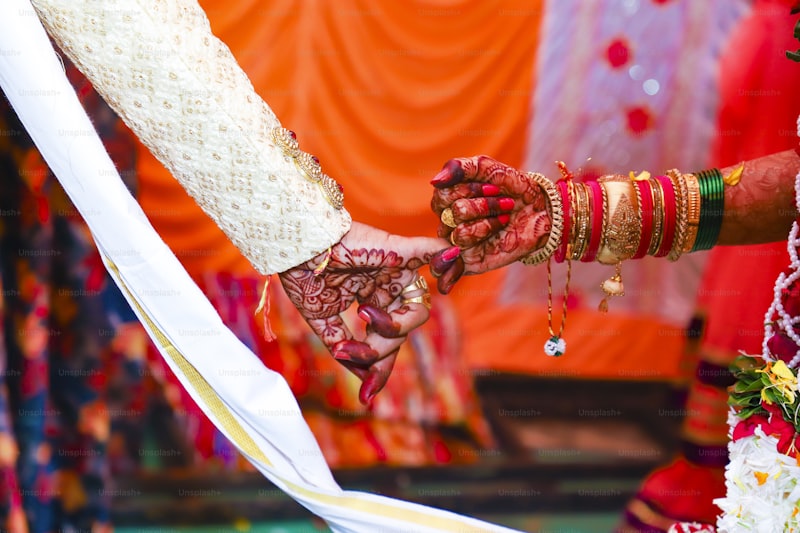The Evolution of Cultural Wedding Practices: A Journey Through Time
Wedding ceremonies are a beautiful expression of love that transcend time and cultural boundaries. Over the centuries, cultural wedding practices have evolved, reflecting societal changes, technology, and globalization. In this article, we will explore the fascinating journey of wedding traditions across various cultures and how they have transformed through history.
Understanding the Origins of Wedding Ceremonies
Historically, weddings were not just a celebration of love but served as a formal agreement between families, often for economic or political reasons. The evolution of cultural wedding practices can be traced back to ancient civilizations where marriages were often viewed as alliances. Here are a few notable examples:
| Ancient Civilizations | Wedding Practices |
| Egyptians | Marriage contracts were signed, and prominent ceremonies took place to solidify alliances. |
| Greeks | The significance of the bride’s dowry was emphasized, with festivities marking her transition into the husband’s family. |
| Romans | Marriage was a civil affair with rituals that included an exchange of vows and rings. |
The Influence of Religion on Wedding Traditions
Religion has played a pivotal role in shaping wedding practices. Various faiths have their own unique customs and rituals, which have contributed to the diversity of wedding ceremonies worldwide. Some of the significant religious influences include:
Christian Weddings
Christian weddings typically involve a church ceremony, where vows are exchanged before God and the community. Traditions such as the unity candle and the exchange of rings symbolize the couple’s love and commitment. The significance of the sacrament of matrimony can be traced back to biblical teachings.
Hindu Weddings
Hindu weddings are rich in rituals that can last for several days. The concept of 'saptapadi,' or the seven sacred steps, is a crucial part of the ceremony, symbolizing the couple's journey together. Each step represents a vow and commitment to one another.
Muslim Weddings
In Muslim weddings, the 'nikah' is the formal contract that establishes the marriage. Ceremonies may involve the recitation of verses from the Quran and the exchange of customary gifts. The significance of family involvement also echoes in many cultural traditions.

Modern Influences on Wedding Practices
The modern era has brought about a significant transformation in cultural wedding practices. With globalization and advancements in technology, couples have more choices than ever when it comes to crafting their wedding day. Here are some trends shaping contemporary weddings:
Destination Weddings
With the rise of travel accessibility, many couples opt for destination weddings, embracing unique local customs while celebrating their love. This trend allows for a blend of different cultural practices and creates unforgettable memories surrounded by breathtaking scenery.
Personalization of Ceremonies
Today, many couples seek to personalize their ceremonies, incorporating elements that reflect their unique relationship. From themed weddings to custom vows and unique venues, personal touches are now a hallmark of modern weddings.
Technological Innovations
Technology has also shaped wedding practices significantly. Live streaming ceremonies allow loved ones from around the world to attend virtually, while social media platforms offer new ways to share and celebrate. Wedding planning apps and websites have transformed how couples organize their big day, making the process more accessible and efficient.
Examining Cultural Variations in Wedding Practices
The rich diversity of cultural wedding practices offers a glimpse into the values and beliefs of different societies. Here are a few intriguing variations:
Japanese Weddings
Traditional Japanese weddings often feature the Shinto ceremony, where couples dress in colorful kimonos. Rituals include the exchange of sake and the sharing of vows in front of family and deities, emphasizing harmony and unity.
Irish Weddings
In Ireland, the tradition of "handfasting" was once common, symbolizing the couple's commitment before they were legally married. Modern Irish weddings often incorporate Celtic symbols and may include a "rings warming" ceremony, where guests bless the rings before the couple exchanges them.
Mexican Weddings
Mexican weddings are known for their vibrant celebrations, often beginning with a religious ceremony followed by a lively reception. The “lazo,” a figure-eight shaped cord, is placed around the couple to signify their union, and traditional music and dance play a vital role in the festivities.
Challenges and Considerations in Wedding Practices
While cultural wedding practices enrich the experience, couples may face challenges in blending traditions, especially if they hail from different backgrounds. Open communication and mutual respect are essential in navigating these differences. Additionally, couples should be mindful of the budget and consider the evolving societal norms regarding wedding expenditures.
Conclusion: Embracing the Evolution of Cultural Wedding Practices
Wedding practices have significantly evolved over time, influenced by history, religion, modern trends, and cultural diversity. As societal values continue to change, the art of celebrating love will adapt, ensuring that wedding traditions remain relevant and meaningful. Whether you choose to honor ancestral customs or forge your unique path, the essence of marriage is about commitment, love, and partnership.
When planning your wedding, consider the history and significance behind different practices. By embracing both tradition and modernity, you can create a ceremony that resonates with you as a couple, celebrating your love in a way that feels genuine and true.
In summary, the evolution of cultural wedding practices illustrates the dynamic nature of love and relationships across human history. As you embark on this journey, remember that the most crucial aspect is the joy of celebrating your unity with your loved ones, regardless of the traditions you choose to incorporate.